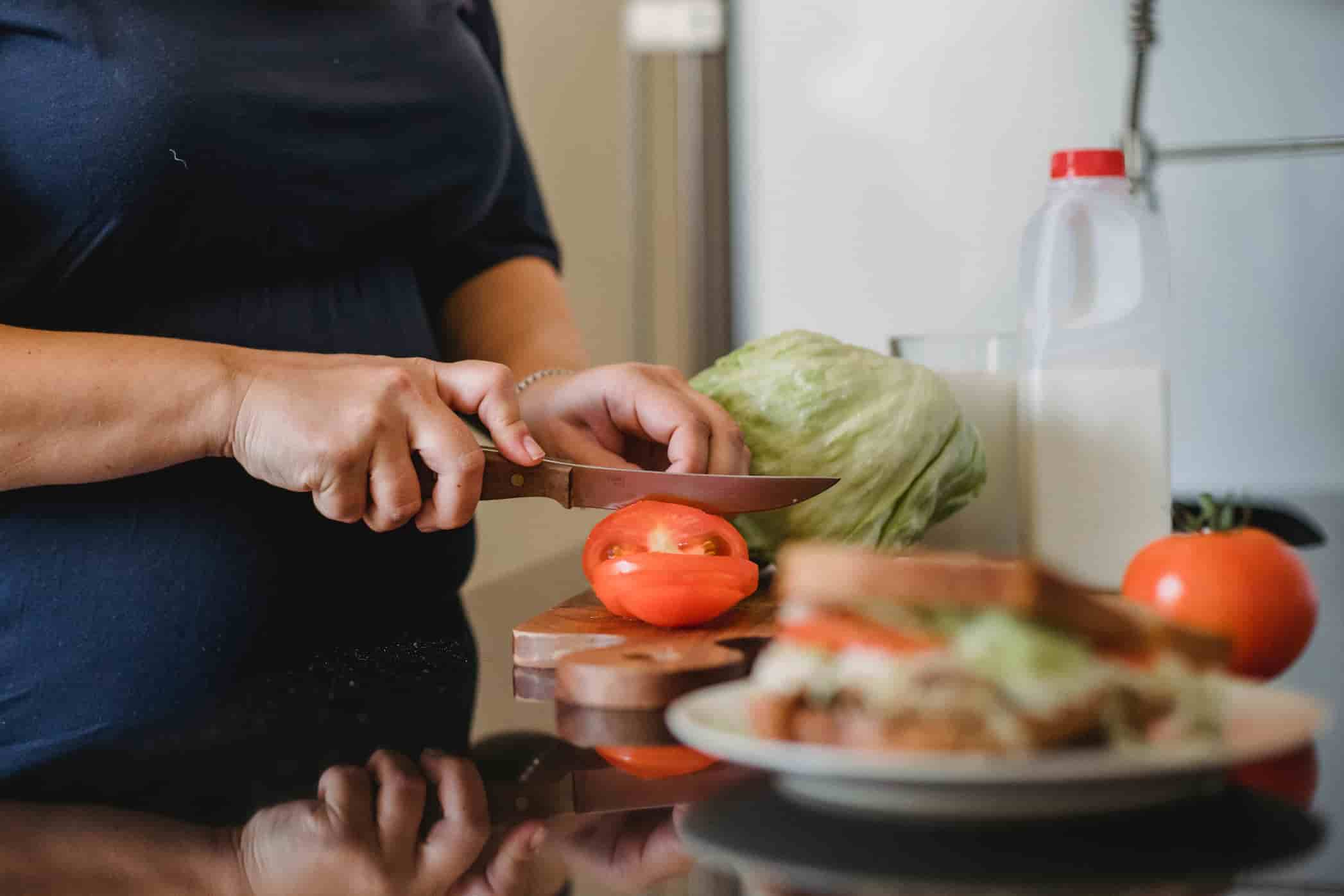Receiving a diabetes diagnosis can be scary and overwhelming. With all the life adjustments you must make, it can often feel like your world is turning upside down. Living with diabetes usually means checking your blood sugar levels regularly, making healthy food choices, and staying physically active, among many other factors. As if that wasn't enough, you also may be concerned about developing other health complications such as cardiovascular disease, maintaining healthy blood sugar levels, and paying for your diabetes medication.
Thankfully, there are ways to remove some of that stress from your life. You can talk to family and friends, take time for the activities you enjoy, and tackle one health issue at a time.
One of the best ways to assuage your diabetes-related worries is to consult a diabetes nutritionist. This article will outline what a diabetes nutritionist is and the benefits of working with a diabetes nutritionist. We'll also discuss which individuals are ideal candidates to work with a diabetes nutritionist, so you can decide whether this is the right choice.

Diabetes and nutrition
Diabetes is a chronic health condition affecting how your body converts food into energy.
Most of the food you consume gets broken down into glucose, which is released into your bloodstream. When your blood sugar increases, this is a sign that it's time for your pancreas to produce insulin. Insulin unlocks your cells' ability to let blood sugar in for use as energy.
When you have diabetes, your body either doesn't make enough insulin or doesn't use insulin as well as it should. People with diabetes have too much blood sugar in their bloodstream, which can ultimately cause health problems such as heart disease, kidney disease, and vision loss.
What people with diabetes eat dramatically impacts their health. A healthy, diabetes-friendly diet can help promote healthy blood sugar and cholesterol levels. It can also help with controlling high blood pressure and reaching a desirable weight. However, even when you have the best intentions about taking care of your health, it can be daunting to know which foods to eat, at which times, and in which quantities. This is especially true when you have the stress of diabetes in your daily life.
This is where diabetes nutritionists come in. They'll help you understand which nutritious foods are the best for your specific needs, and they'll help you adjust to appropriate portion sizes and a good meal schedule. A registered dietitian nutritionist (RDN) specializing in diabetes has specialized training in designing healthy eating plans that consider a complex array of health, nutrition, and lifestyle factors. They'll work with you to develop an in-depth knowledge of the best nutrition practices for your body.
What does a diabetes nutritionist do?
There are many services that a diabetes nutritionist can provide to help you manage diabetes and related health conditions. A diabetes nutritionist will talk to you about your current eating habits and diet, so they can get a baseline of where you are in your health journey. From there, a diabetes nutritionist will help you set realistic goals for your wellbeing. These health goals will not always be food-focused but may relate to other ways you can stay healthy. Whether that's implementing a regular exercise regime or staying hydrated every day, there are many ways you can stay on top of your health.
A diabetes nutritionist will also help you develop a personal nutrition plan. Creating your nutrition plan will not simply involve your nutritionist telling you what to eat. Instead, it will be a collaborative process. Although people with diabetes have to live with some dietary limitations, this doesn't mean that mealtimes have to be boring or unpleasant. After all, tasty foods and a healthy diet are not mutually exclusive. A diabetes nutritionist can help you develop a healthy food plan that appeals to your personal preferences.
What is the difference between a diabetes nutritionist and a diabetes dietitian?
Diabetes dietitians and diabetes nutritionists are professionals who focus on how a diabetes diet can improve your overall health. While both are considered healthcare professionals, they are not necessarily the same, even though people often use the terms "dietitian" and "nutritionist" interchangeably.
A registered dietitian specializes in dietetics, a field that focuses on diet and its impact on health. Dietitians most commonly work with clients grappling with a medical condition who need to alter their diet accordingly. Dietitians will also work with individuals working towards specific health objectives, such as weight loss goals. Dietitians most commonly work in hospitals, clinics, and healthcare facilities but sometimes teach at universities.
All dietitians must have a bachelor's degree, supervised professional experience, and successful completion of the national exam administered by the Commission on Dietetic Registration. Unlike registered dietitians, nutritionists may have varying levels of expertise and experience. This is because anyone interested in nutrition can call themself a nutritionist – there are no official requirements to use the term. Thus, all registered dietitians are nutritionists, but not all nutritionists are registered dietitians.
While many nutrition professionals who use the term "nutritionist" have advanced degrees and have completed the appropriate certification to become certified nutrition specialists, others may have no professional training. Therefore, if you plan on working with a nutritionist, assessing their level of expertise and experience before committing to their services is essential.

What are the credentials of a diabetes nutritionist?
A certified nutrition specialist (CNS) is the most advanced certification for personalized nutrition practitioners. A CNS must undergo several training steps before receiving this qualification.
Earn a bachelor's degree
A certified nutrition specialist must have a bachelor's degree. This bachelor's degree will typically include courses in food and nutrition services, food service systems management, business, economics, computer science, sociology, biochemistry, physiology, microbiology, and chemistry.
Supervised experience
Once an individual has earned a bachelor's degree in a related field, they can get hands-on nutrition experience in a professional setting. A CNS-in-training will typically gain this experience at an accredited or supervised practice program at a health care facility, community agency, or food service corporation.
Pass a national test
The last step an individual must take before becoming a CNS is passing a national test administered by the Commission on Dietetic Registration. Candidates who have completed at least 1,000 hours of supervised practice and are committed to understanding the theoretical aspects of nutrition have the best chance of passing this exam. After successfully passing the test, the nutritionist must acquire the appropriate registration and licensure for the state where they plan to practice.
Further professional education
A certified nutrition specialist must complete professional educational requirements to stay licensed and registered. To remain current and up to date as a diabetes nutritionist, additional training is expected, such as taking a course and becoming a certified diabetes educator (CDE).
What are the benefits of working with a diabetes nutritionist?
There are many benefits of working with a diabetes nutritionist. Here are some of the most significant ones.
Teach the basics
If you've never worked with a diabetes nutritionist, you most likely acquired your knowledge of diabetes from various health websites. A diabetes nutritionist is not only a healthcare expert but also an educator. Part of their professional role is to educate you about the relationship between nutrition, lifestyle, and diabetes and dispel myths about the illness.
After regularly consulting with a nutrition professional, you will feel empowered to manage your health by confidently grocery shopping, understanding nutrition labels, and preparing tasty meals.
Clear up confusion
One of the most important things you will do with your diabetes nutritionist is to develop a personalized meal plan. This nutrition plan will cover all aspects of your eating habits, including what, when, and how often you should eat.
However, there will be times when you want to eat something that you haven't discussed with your nutrition specialist. For instance, if you are planning to go out to dinner with friends, you may be wondering which menu items are the healthiest choices for a diabetic diet. Consulting your diabetes nutritionist will give you the peace of mind that you are making the best ordering choices.
Learning about your nutrition needs is a gradual process – you will not absorb this information all at once. In the meantime, your nutritionist can be your go-to resource when you are in a bind.
Live a fulfilling life with diabetes
People with diabetes are not destined for a life filled with boring and bland meals. By getting creative and thinking outside the box, your everyday meals can be enjoyable and healthy experiences. Your diabetes nutritionist can help you achieve this by providing cooking tips, meal prep guidance, recipe modifications, and snack ideas.

Am I a good candidate to work with a diabetes nutritionist?
If you are living with diabetes, you will almost certainly benefit from working with a diabetes nutritionist. Here are a few individuals who should strongly consider working with an expert. If you fall into one of these categories, it might be time to search for a “nutritionist near me”!
Gestational diabetes
Every year, 2% to 10% of pregnancies in the United States are affected by gestational diabetes. This type of diabetes occurs when pregnant women do not have enough insulin to support their growing baby as their bodies and hormones change. Pregnant women who do not control their gestational diabetes can develop complications with their pregnancy. To avoid this, expecting mothers often seek out the support of diabetes nutritionists. Diabetes nutritionists can help guide you through healthy eating, physical activity, and maintaining a healthy weight during pregnancy. Sometimes, you may need to consult your doctor for additional help, such as prescription medication.
Pre-diabetes
If you have been diagnosed with pre-diabetes, you have high blood glucose levels, but they are not high enough to meet the criteria for type 2 diabetes. Individuals with pre-diabetes can significantly benefit from the help of a diabetes nutritionist. Consulting with an expert may make the difference in ultimately avoiding a diabetes diagnosis. A nutritionist can help you make the necessary changes and control your blood glucose levels through healthy eating, physical activity, and medications.
Newly-diagnosed type 1 and type 2 diabetes
If you are living with type 1 or type 2 diabetes, you can significantly benefit from the help of a registered nutritionist. In just one session, a nutritionist can help you develop a daily meal plan that factors in your medication, the foods you like, and how active you are.
Depending on your progress and health, you will probably have several follow-up visits in subsequent months. However, many individuals with diabetes experience notable changes in their health after three to five appointments in the first six months after diagnosis.
Still not sure? Read more about what a diabetes nutritionist does here. Diabetes nutritionists are on standby to meet you! Get matched with a diabetes nutritionist - take the quiz.













